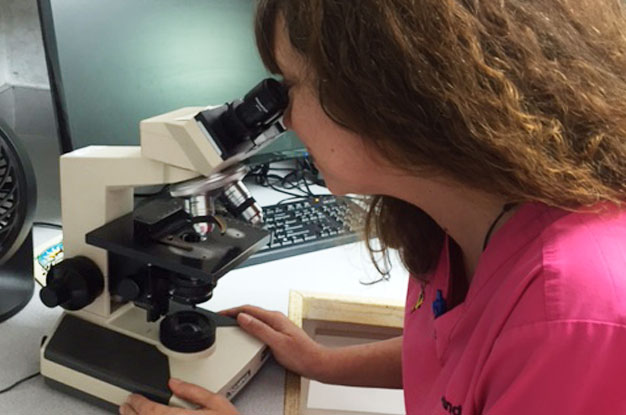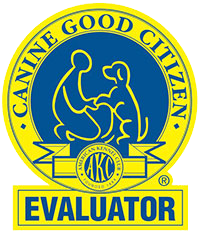
Have you noticed that whenever you go to the vet the technician takes a stool sample from your pet? We promise that we don’t want to upset your pet and that there are very good reasons for us needing to look at your pet’s stool sample.
When a technician enters an exam room, she will typically get the vitals on your pet. This means heart rate, respiratory rate and temperature. As you can imagine, no pet will hold a thermometer in its mouth. This is why we do it similarly to the way a baby’s temperature is taken: rectally.
Certainly it’s reasonable that a stool sample would need to be examined if your pet is presented for vomiting and/or diarrhea, but why do vets want stool on a wellness exam?
Florida is a tropical climate which can more easily lead to the parasites that are an enormous problem for cats and dogs. These parasites include:
- Ectoparasites (those outside the body) such as flea, ticks and mites.
- Endoparasites (those inside the body) consist of heartworms and intestinal parasites.
Parasites in Stool
Intestinal parasites can be transmitted through the placenta and milk, so it is important to check puppies numerous times to find and treat these parasites. Since worms in puppies feed on blood and nutrition, they can stunt and even kill puppies, if excessive. The most common parasites seen in puppies include roundworms, hookworms, coccidia and tapeworms.
Roundworms are large spaghetti-like parasites that occur primarily in puppies since they are transmitted from the mother. In large numbers, they can cause a potbelly in puppies and possibly cause an obstruction in the intestines. When a de-wormer is given to kill round worms, you may see the dead worms pass out. Remember that the eggs passed in the stool are microscopic and will not be seen.
Hookworms also can be transmitted from the mother to the babies, and are actively feeding on the puppies at 3 weeks of age. Because they hook into the lining of the intestine, they are able to feed on blood and cause anemia and even death in small puppies. The adult hookworms and their eggs are both microscopic. Hookworms are particularly contagious, since hundreds of thousands of eggs are passed in each dog’s stool. The eggs are found throughout Florida.
When your dog walks outside of its yard, he may collect eggs on his paws. Ingestion of the parasite begins when he licks his feet, and in only 3 weeks, they will be adults in the intestines shedding millions of eggs. Hookworms are the most likely intestinal parasite your pet will pick up and pass to other dogs via feces. This is also why boarding and day care facilities need to have frequent stool checks on the pets in their care.
Two treatments, 3 weeks apart, will break the life cycle, but it is also necessary to pick up all fecal material in the area to prevent re-infection.
Coccidia is a small one-celled parasite seen primarily in puppies and kittens. It is often seen when pets come from facilities with multiple pets such as Animal Services, breeders, or rescue organizations.
Tapeworms are the only parasites that owners may regularly visualize. The tapeworm is also 100% preventable. The tapeworm is spread to your pet when they ingest a flea. Cats, who groom themselves, are particularly prone to infection. The tapeworm attaches to the lining of the intestine and grows incredibly large with segmented portions that break off and pass out of the body and is seen on the stool. These segments, or proglottids, may attach to the fur around the rectum. They are off-white and flat and will be moving. When they die, they dry up and resemble a sesame seed. After treatment, a good flea prevention program must be instituted to prevent re-infection.
Most heartworm medications will have intestinal parasite medication included. Unfortunately, we give heartworm medication every month, and an every 3 week treatment is necessary to break intestinal parasite life cycles. Heartworm medications do not treat intestinal parasites but will help control them.
Often times, a good sample is not available when your pet comes in for an exam. Please bring in a stool sample if possible – about ½ teaspoon is plenty – on your pet’s next visit. Your pet will thank you for it and so will we!
For the love of pets,
Dr. Katherine Murphy

Contact Us
Regular check ups with a veterinarian are important for your pet's health. Contact us today to schedule your next appointment.





